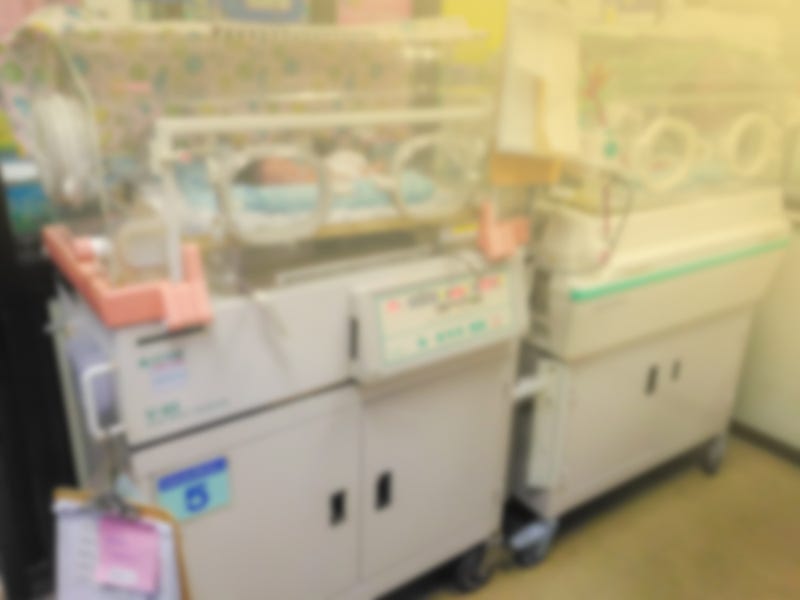
Diana Crouch’s baby was the size of a cucumber when the 28-year-old pregnant woman tested positive for COVID-19 in August.
By the time she gave birth 13 weeks later, Crouch had suffered three strokes and a heart attack. She and her husband Chris named their son after Dr. Cameron Dezfulian, medical director of the adult congenital heart inpatient care at Texas Children’s Hospital, according to TODAY.
Even though the Crouchs were not vaccinated, they did not expect a COVID-19 infection to land Diana in the hospital. She ended up spending close to 140 days hospitalized.
Shortly after returning home to Kingwood, Tx., from an anniversary trip to Las Vegas, Nev., in late July, Diana – who previously had COVID-19 – had a headache and was exhausted.
“I honestly didn’t think I would catch it again,” she told TODAY. “I didn’t think much of it at the time because in pregnancy you just get tired.”
Diana said she was afraid of getting vaccinated while pregnant.
“I was so scared of putting something in my body that would affect my baby. But I ended up getting so much more and I exposed my child to so many things that I would have never thought,” Diana said.
During a regular appointment with her obstetrician, her doctor thought the mother-to-be might be experiencing morning sickness related to her pregnancy. When she developed a low-grade fever, the doctor told her to visit an emergency room.
“We were worried at that point because we didn’t know if it would be affecting the baby,” Diana said. “I went to the ER. I tested positive for COVID and they told me just to monitor my oxygen levels.”
Just two days later, on Aug. 6, Diana was back in the hospital, where she was put on oxygen.
“I still didn’t think anything of it because even people that I knew at work that went to the hospital were just put on oxygen for a few days and they went home,” said Chris Crouch, 37. He said his wife would eventually be hospitalized for 139 days, with much of that stay at Texas Children’s Pavilion for Women.
According to TODAY, Diana doesn’t remember much from her time in the hospital.
Although she resisted, Diana was eventually put on a ventilator. While it kept her in stable condition, it didn’t help her improve, so doctors decided to place her on an extracorporeal membrane oxygenation (ECMO) device.
“ECMO was the last resort,” Chris said. “(They said) ‘This is her best chance at survival and the baby’s best chance.’ So I prayed about it.”
Her parents agreed.
However, Chris explained that “the statistics say that I guess 12 women have carried a baby on ECMO,” so the decision came with concerns.
He called the situation a “nightmare.”
During her time on ECMO, Diana suffered three strokes and a heart attack.
“Her risk factors for clotting were the fact that she had COVID and the fact that she was pregnant and the fact that she was on ECMO,” Dezfulian said. “Unfortunately, she also had a hole in her heart that had blown open that allowed for blood clots on the right side of the heart to essentially cross over to the left side.”
Even with these complications, Diana began improving. At 28 weeks into her pregnancy – 10 weeks after her COVID-19 diagnosis – she came off ECMO.
“Her lungs just improved and she was doing better. She recovered from the strokes, she woke up,” Dezfulian said. “We got her back to ambulatory, meaning standing up and walking and doing things again.”
When she came off ECMO, Diana still needed oxygen via her nose. Then, another complication came.
“She kind of plateaued at that point and it increasingly looked like the growing fetus was the reason for that. It was holding her back from being able to progress with her lungs,” Dezfulian said. “She actually developed a pneumothorax, which is air inside the lung cavity.”
So, her medical team took Diana off blood thinners and she delivered her baby, Cameron, at 31 weeks on Nov. 10. Deliveries any earlier than 32 weeks into a pregnancy are considered “very preterm,” according to the Mayo Clinic.
“He did require oxygen support,” Dezfulian said. “Within a week he was actually completely off (oxygen). He did great and only spent three weeks in the hospital before going home.”
Diana was transferred to Methodist Hospital after the birth.
Doctors thought she might need a lung transplant, but she started improving.
“They were able to wean her quite effectively,” Dezfulian said. “She was up and walking within three or four days of her arrival there. She was off the ventilator.”
She was back home just in time for Christmas.
“We were happy,” Chris said. “We didn’t want a lung transplant.”
“Coming home was very emotional for me,” said Diana. “I actually felt a little bit down for a couple of days. It’s a lot for me to take in. I hadn’t seen my kids for so long.”
Diana has been regaining strength since her hospital stay. She and her husband have also been vaccinated for COVID-19.
“I learned the hard way,” she said of avoiding the vaccine. I don’t like to push anybody into stuff. I don't like to but I encourage everyone to get vaccinated.”
“There’s good data that vaccines are safe and they’ve very effective in terms of preventing severe illness,” said Dr. Dezfulian. “If pregnant women are vaccinated their chances of getting so sick that they need ECMO are exceptionally low.”
As her condition improves, Diana is still concerned about how the experience will impact her.
“I worry a lot. I’m scared. I just don’t know the effects my body went through,” she said. “It was no joke. It wasn’t anything good. I just don’t know what the future holds.”
LISTEN on the Audacy App
Sign Up and Follow Audacy
Facebook | Twitter | Instagram
